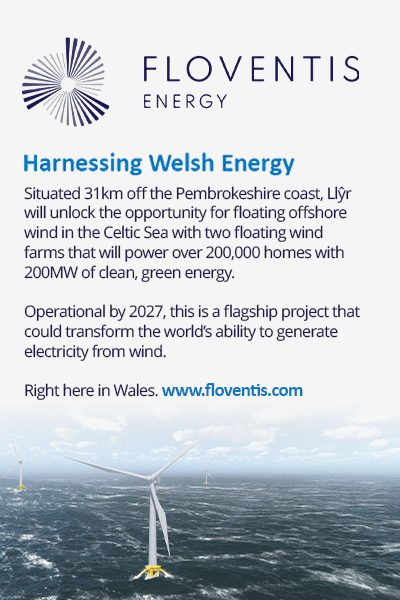
Anglesey Council has trialed the use of a new electric recycling collection vehicle to further its efforts to achieve net zero carbon status by 2030.
The council worked with its recycling and waste collection contractor, Biffa Municipal, on the two-week trial. This marks the latest step on the journey in achieving a zero emissions fleet.
Initial trails of ultra-low emission vehicles, or ULEVs, for waste collection purposes, took place in April 2022. Findings from the initial trial proved to be extremely encouraging, with the vehicle being put to the test in various locations over the island, performing to a very high standard.
Anglesey Council and Biffa Municipal’s Waste Management staff praised the new vehicle during its trial period, noting that the electric vehicle proved it was able to cover the distances required to ensure recycling collections were completed.
The council and Biffa is pro-actively working with the Welsh Government to help develop a business plan to increase ULEVs in its fleet, review the grid connection, and set up new charging connections.
Waste Management’s current electric vehicle fleet boasts two electric skid-steer loaders, two teletruks and a utility vehicle, shared between Penhesgyn and Gwalchmai Recycling Centres.
Anglesey’s Head of Highways, Waste Management and Property, Huw Percy said: “Anglesey continues to explore methods to decarbonise its recycling and waste collection fleet, in accordance with our ambitious aim of being a net zero council by 2030.”
Anglesey’s Highways, Waste and Property Portfolio Holder, Councillor Dafydd Rhys Thomas, added:
“Replacing our existing recycling collection fleet with electric vehicles would significantly help to reduce CO₂ emissions, costs, and support the council’s net zero by 2030 target. This latest trial is another step in the long journey of modernising our fleet, and in turn, improving our infrastructure to enable an increase of ULEVs in the future.”
Anglesey Climate Change Manager Rhys Williams said:
“Adopting new technology, such as electric recycling and waste collection vehicles, will support our work to achieve zero carbon status by 2030.
“By undertaking further trials, we’re able to test new technologies and vehicles, and look at how we can address the challenges of grid capacity and charging infrastructure to support our transition to a zero emissions fleet. I’m delighted the initial feedback from the latest trial is overwhelmingly positive, as we continue to explore emerging technologies that support our overreaching Towards Net Zero Plan.”
The next step in the process will be a study by Cenex, funded by the Welsh Government, to help determine infrastructure improvements that may be required to facilitate a more carbon friendly fleet.




